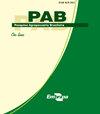New model of clonal garden for the production of robusta coffee plantlets
IF 0.7
4区 农林科学
Q3 AGRICULTURE, MULTIDISCIPLINARY
引用次数: 1
Abstract
Abstract The objective of this work was to evaluate the production of cuttings of Coffea canephora genotypes, in a new system for training mother plants called “vertical clonal garden”. The proposed new system consists of training coffee plants with only one shoot and without bending the main shoot, so that the secondary orthotropic shoots, from which the clonal cuttings will be taken, are formed across the length of the stem in the vertical direction. The capacity for the production of cuttings of ten hybrid genotypes of coffee plants was evaluated over ten production cycles. The 'BRS 2314', 'BRS 3213', and 'BRS 3210' genotypes showed cutting production per cut of 425,000 cuttings per hectare, considered above the obtained average. The 'BRS 3193', 'BRS 2336', 'BRS 3220', and 'BRS 3137' genotypes were the least productive. Coffee plants trained in the “vertical clonal garden” system can produce about 425,000 cuttings per hectare per harvest period or about 1.275 million cuttings per hectare per year, over three harvest periods, with a greater ease in crop management and treatments.罗布斯塔咖啡苗无性系栽培新模式
摘要/ Abstract摘要:本研究的目的是评价在“垂直克隆园”培养母株的新系统中,咖啡canephora基因型扦插的产量。提出的新系统包括只训练咖啡树的一个芽,并且不弯曲主芽,以便在垂直方向上沿着茎的长度形成次生的正交各向异性芽,克隆插枝将从这些芽中获得。在10个生产周期内对10个杂交基因型咖啡植株的插穗生产能力进行了评价。“BRS 2314”、“BRS 3213”和“BRS 3210”基因型显示,每公顷扦插产量为42.5万枝,高于所得平均值。‘BRS 3193’、‘BRS 2336’、‘BRS 3220’和‘BRS 3137’的产量最低。在“垂直克隆园”系统中训练的咖啡树每个采收期每公顷可产生约42.5万根插枝,或每年每公顷可产生约127.5万根插枝,超过三个采收期,作物管理和处理更加容易。
本文章由计算机程序翻译,如有差异,请以英文原文为准。
求助全文
约1分钟内获得全文
求助全文
来源期刊

Pesquisa Agropecuaria Brasileira
农林科学-农业综合
CiteScore
1.20
自引率
0.00%
发文量
45
审稿时长
9-18 weeks
期刊介绍:
Pesquisa Agropecuária Brasileira – PAB – is issued monthly by Empresa Brasileira de Pesquisa Agropecuária – EMBRAPA, affiliated to Ministry of Agriculture, Livestock and Food Supply. PAB publishes original scientific-technological articles on Plant Physiology, Plant Pathology, Crop Science, Genetics, Soil Science, Food Technology and Animal Science.
Its abbreviated title is Pesq. agropec. bras., and it should be used in bibliographies, footnotes, references and bibliographic strips.
 求助内容:
求助内容: 应助结果提醒方式:
应助结果提醒方式:


